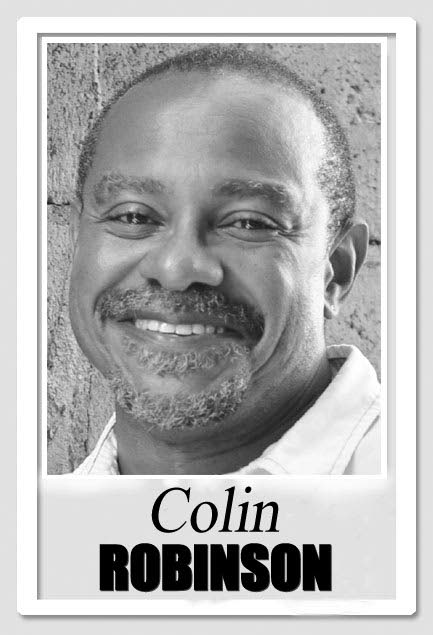Feminism is easy

I missed yesterday’s march. And how I missed marching yesterday.
I’ve grown very fond of TT’s annual International Women’s Day march around the Savannah. Especially the process of making my sign, along with others, gathered among the paint and markers, glitter and bristol board, pipe cleaners and scissors, on the tables and floor of CAISO’s office.
My first march coincided with the start of my column here two years ago, and its second entry carried a picture of me with the Doc Mc Stuffins doll I bought in Trincity Mall and the sign’s message – Prevent Domestic Violence: Give a boy a doll.
Last year’s march fell in the middle of the Parliament’s engagement with the idea of registering sex offenders. My sign asked then “Want to register sex offenders?” and provided an answer: “Believe the girls who report them.”
This year, I braved covid19 and boarded the plane to Trumpistan the day before. My neighbourhood pharmacy and supermarket were both sold out of hand sanitiser, so I went bold, knowing the water supply to the bathrooms on the small jets my airline, Copa, flies doesn’t operate when the plane is at the gate.
I’ll spend the better part of the next six weeks in daily trips to an elite medical institution where I imagine I’m more likely to catch the coronavirus than be kept safe by some of the best medical technology and leadership in the world.
I miss the safety that the march I missed represents.
The march each year is a lovely gathering of all sorts of groups – the lesbian support group that made the newspaper front page, ethnic and faith-based organisations, workers’ groups, a midwifery centre. Families – many with baby strollers, toddlers, dogs. And so many young women and men, making joyful noise.
This year’s march occurs during a troubling period of especially gruesome and frequent incidents of domestic violence against women and girls that prompted its own gathering outside Parliament at the end of January, ironically the very day before I returned home from chemotherapy.
Yet Saturday’s march organisers have been insistent in its mission and message that women’s lives and visions are bigger and broader than violence and victimhood.
The march has been equally insistent, notwithstanding the year’s international theme or domestic issues it also manages to choose for focus each year, on being a space where people are welcome to come with their own voice and cause. It has been a space for celebrations and aspirations of freedom, not just of speech or spirit, but of whole lives.
That celebration is what has for me always characterised the Caribbean’s feminist movement: a big tent for those who commit to other people’s equality and freedom.
It isn’t that Caribbean feminist women don’t insist fiercely on their own leadership or on making support for gender transformation and women’s specific concerns the price of the ticket. Nor am I denying that arguments over principle, pedantry involving eye-crossing minutiae, or toxic leaders don’t plague the movement. Indeed, I’ve been called out – I believe in these very pages – by colleagues exhausted by my statements that women ought to be more polite and strategic, which would enable men, with all the privilege and power society gives us, to come to the equality table. Essentially, that women ought not to show the anger and disgust they rightfully feel.
But what overwhelms all of these is how easy it is for any justice agenda to find a rightful place – and fit – within the vision of Caribbean feminism.
A recent experience of engaging with a group of male advocates around taking public positions on issues brought this home powerfully in ways I hadn’t understood before. Our conversation started out with my sudden realisation that more divides than unites us as men. We didn’t have anything that seamlessly offered us a shared politics or values. I would have to negotiate my sexuality with religious believers. Class and education, age and experience all tugged our values in different directions. While we might agree that we wanted a world where we as men were happier and less violent, I wasn’t sure that what we imagined as justice looked at all the same.
In contrast, I recalled how easy it has been to work on gender issues with women from a point of certainty that everyone deserves justice. That we were all fighting for justice for each other.
That’s what I missed yesterday in that motley walk around the Queen's Park Savannah. The chance to be reminded of how generative and inclusive the idea of feminist justice is. The generosity and hope and beloved community in the march’s watchwords: Honour, Include, Encourage, Act.


Comments
"Feminism is easy"